For the most part, we take our brain’s health for granted. Even if we are on a health journey, we rarely think about our brain’s health and cognitive function. But recently, the brain health paradigm has been changing. There is compelling evidence that the brain is connected with the gut and the heart, and cognitive decline conditions such as Alzheimer’s disease are no longer mysterious conditions that come out of nowhere due to simply genetic predisposition.
The new paradigm is that cognitive decline is a lifestyle-related autoimmune condition with a complexity of root factors that must be addressed. The bad news is that living a classic western lifestyle is most probably leading us to neurodegeneration and risk of dementia, but the good news is that we can do something about it before it happens. And sometimes, it is as simple as changing your diet or making sure you sleep better.
Sometimes it is more complicated. That’s why I decided to gather all the information I came across so far and put it in this article in a form that is easy to digest and makes you take action (I hope!).
Disclaimer: these are not my personal opinions, and it’s not medical advice, but a collection of ideas belonging to renowned pioneers, scientists, and medical experts who have studied cognitive decline in the past two decades. Please consult a medical professional if you have questions about your risk for cognitive decline and how any of the ideas below can help you reduce that risk.
Every 65 seconds, someone in the US develops Alzheimer’s
Chances are, if you are reading this, you have someone in your family or know someone in your circle that has or had Alzheimer’s or any other form of cognitive decline or neurodegenerative condition. At this point, there are three cases of Alzheimer’s in my family. The three of them are females. I am seeing the devastating effects of this disease almost every day. It’s heartbreaking, especially knowing that this is preventable.
My friend’s mom just passed away from Alzheimer’s. I hear people talking every day about it. And you know what’s sad? In some countries, many people go undiagnosed because there is still a huge stigma around being brain sick. So people prefer to hide it or pretend it is a sign of advanced age.
Genetic predisposition for cognitive decline
Genetic predisposition is real, and it’s what makes this topic relevant to me personally because both my husband and I have family members with a form of dementia.
According to Dr. Dale Bredesen, the author of The End of Alzheimer’s and the creator of the RE-CODE protocol to prevent and reverse cognitive decline, states that if you have one Apoe4 gene (also called the Alzheimer’s gene), there are 30% chance you will develop the condition. For those who have two copies of Apoe4 (Apoe44), the risk is over 50%. Someone who doesn’t have any of these genes has a 7 to 9% chance to develop Alzheimer’s during their lifetime.
However, there is a catch when we look at this data: this only applies to the US and most developed countries because it is known people with the same genes living in African countries like Nigeria and Ghana do not develop the disease.
The facts about cognitive decline
So the question has been, for these experts, what is causing cognitive decline to rise at such a pace in the western world? Is it our lifestyle, and if so, what exactly? And is there a way for us to prevent cognitive decline and support brain function? According to Alzheimer’s Association, these are some of the facts:
- Every 65 seconds, someone in the US develops the disease
- 5.8 million Americans are living with Alzheimer’s
- By 2050, this number is projected to rise to nearly 14 million
- And because the costs of cognitive decline for society are enormous, it is predicted they will rise from $290 billion in 2019 to 1.1 trillion in 2050
- 2/3 of those who are diagnosed are women – and no one knows why
- After 60, a woman has a 1 in 5 chance of developing Alzheimer’s
We have 20 years of prevention
“Everybody knows a cancer survivor, but nobody knows an Alzheimer’s survivor, and there simply haven’t been many breakthroughs recently in dementia research. […] there is about a 20-year period between when the underlying process actually starts in your brain and when you receive a diagnosis of Alzheimer’s. Thus, there is a tremendous window of opportunity to remove what’s causing problems and to build resistance to cognitive decline. Start learning how to do that today.” – Dr. Dale Bredesen
Cognitive decline is a growing concern in western societies and is a lifestyle disease. What today is diagnosed as Alzheimer’s (by the presence of amyloid plaque) is a protective response of our brain to lifetime exposure to different lifestyle factors. The root cause of cognitive decline is a complex of factors that can differ for each person.
Resources
Books
- The End of Alzheimer’s, The First Program to Prevent and Reverse Cognitive Decline, by Dr. Dale Bredesen
- Grain Brain: The Surprising Truth about Wheat, Carbs, and Sugar–Your Brain’s Silent Killers, by Dr. David Perlmutter
- The Plant Paradox: The Hidden Dangers in “Healthy” Foods That Cause Disease and Weight Gain, by Dr. Steven Gundry
- The Longevity Paradox: How to Die Young at a Ripe Old Age, by Dr. Steven Gundry
- Genius Foods: Become Smarter, Happier, and More Productive While Protecting Your Brain for Life, by Max Lugavere
Associations / Facts / Articles
- Alzheimer’s Association
- The Women’s Alzheimer’s Movement
- Re-CODE, The Reversal of Cognitive Decline
- Regenera Medical
- The Empowering Neurologist – David Perlmutter, MD and Dr. Dale Bredesen
10 ways to keep your brain healthy
1. Heal The Gut
There is compelling evidence that your gut is connected to the brain and an unhealthy gut contributes greatly to neuroinflammation.
The old theory about Alzheimer’s was that the brain produces amyloid, which kills the neurons and causes the disease.
The new paradigm is that the amyloids are not coming from the brain; they are coming from the gut.
“Just as your gut bacteria create LPSs each time they divide and/or they die, they produce amyloid when their own proteins die or become dysfunctional. They are called shed molecules because they literally split off from healthy bacteria and then travel through the body either by penetrating a vulnerable gut wall or by climbing the vagus nerve to the brain. Once they reach the brain, they stimulate the brain to produce more amyloid, therefore becoming self-sustaining. In addition to disrupting normal cellular function, amyloid proteins then interfere with communication between cells.” – Dr. Steven Gundry, The Longevity Paradox, pg 151
So a healthy gut comes into play: if you have a healthy gut population, they won’t make amyloid proteins to begin with. And even if they do, if your gut lining is healthy and impermeable, they won’t cross the blood-brain barrier. And even if they reach the brain, it doesn’t necessarily mean that they will cause damage.
The glymphatic system
If your brain clean-up system – the glymphatic system – does its job correctly, the damage will not happen. The catch is that the glymphatic system is twenty times faster when you are in a deep sleep and is most active early in the sleep cycle.
So two things need to happen if you want to wake up with a refreshed and rejuvenating mind every day: to have a good sleep and not eat too close to sleep. If you eat too late at night, your blood flow and energy will prioritize digestion instead of giving your glymphatic system full power to clean your brain.
“Your gut and brain are connected physically through millions of nerves, most importantly the vagus nerve. The gut and its microbes also control inflammation and make many different compounds that can affect brain health.” More here.
So how do you know whether your gut is healthy or not?
Constant bloating, acid reflux, constipation, diarrhea, abdominal or stomach pain, food intolerances, bad skin, fatigue, brain fog, and more are signs that your gut is not doing well.
Assess your symptoms, do some tests, and find a specialist who can diagnose your gut problem and help you fix it. Diet is a big part of healing your gut, and it can be done in different ways, and bio-individuality is important. Still, everyone should implement a few things that are common to most healthy eating lifestyles.
Eat real food, a lot of plants
Seasonal and organic when possible, and keep it diverse. Prioritize leafy greens, cruciferous and nonstarchy vegetables.
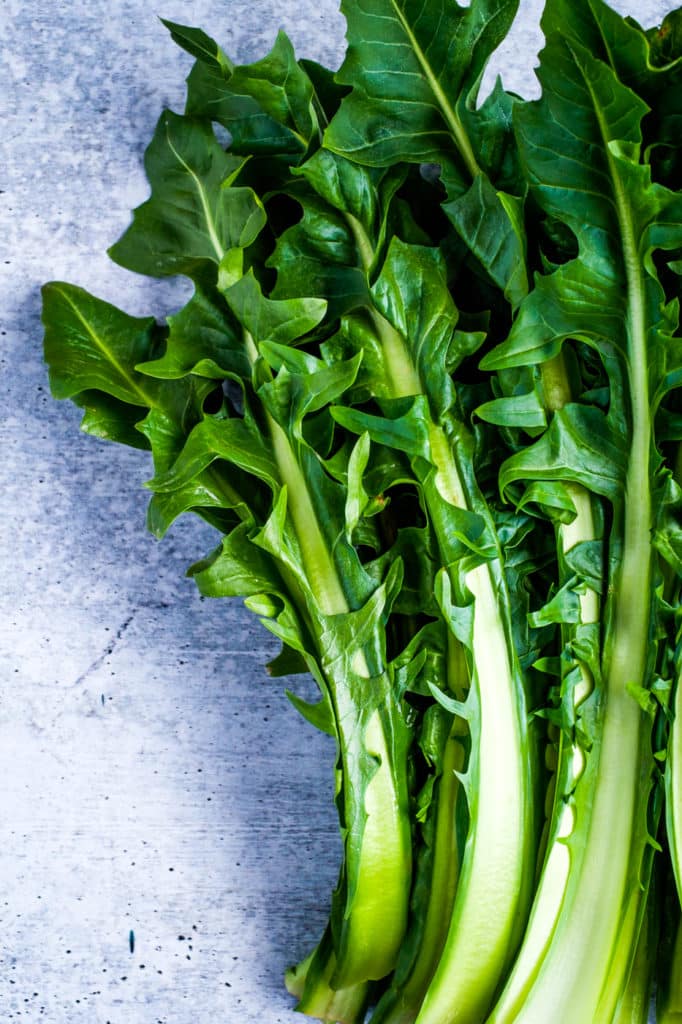

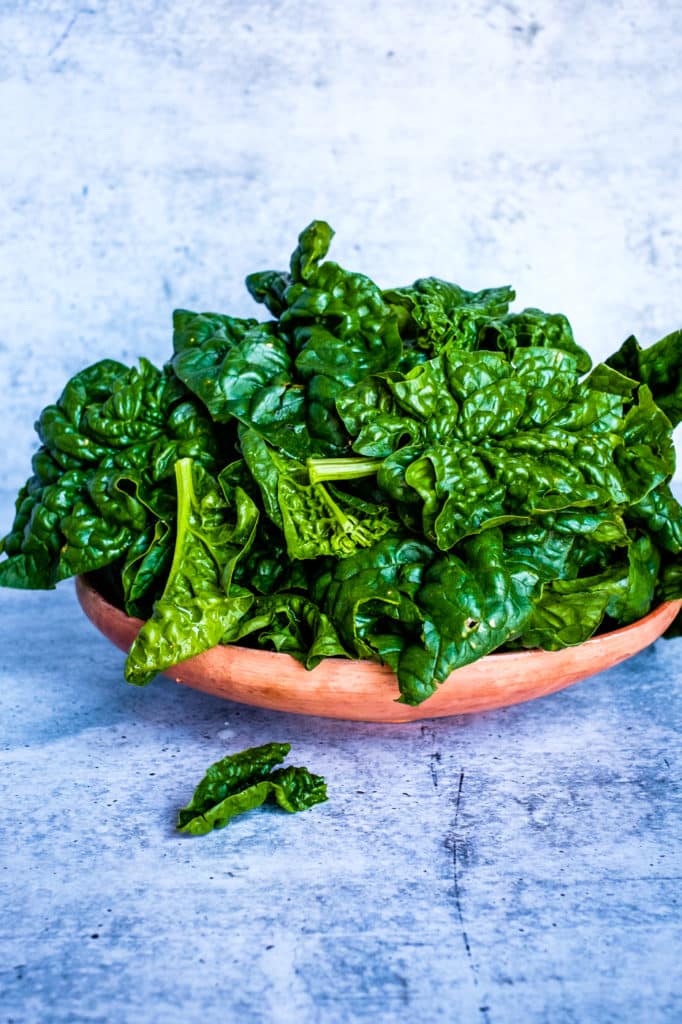


Eliminate or reduce processed food
Cook your own meals. Buy from the produce section of supermarkets and the farmer’s markets. Don’t buy packaged food and make it a habit to read labels. Get familiar with what specific labels and ingredients mean. Many unhealthy processed foods have health claims like “heart-healthy” or “all-natural” – they mean absolutely nothing. They are just a marketing gimmick.
Keep simple carbohydrates low
And make the better choice. Replace white potatoes with sweet potatoes and yams, reduce or eliminate grains, and if you have to eat bread every once in a while, choose natural, slow-fermented sourdough bread, made with only four ingredients: flour, water, salt, and sourdough starter. Or make bread from alternative flours. I have developed a method to make lectin-free and gluten-free sourdough bread; you can find all the details on this website: SOURDOUGH.
“Gluten sensitivity – with or without the presence of celiac – increases the production of inflammatory cytokines, and these inflammatory cytokines are pivotal players in neurodegenerative conditions. “, David Perlmutter, Grain Brain, pg. 73
Make animal protein a condiment and eat only the highest quality
Not the main feature of your meals. Ensure it comes from trusted sources and is raised and fed naturally (grass-fed, grass-finished for cows, pasture-raised for chicken, wild-caught for fish, etc.). There is compelling evidence that animal protein plays an essential role in aging.
You don’t have to give it up, and just be mindful of its quality and how much you are having. You can implement a meatless day in your family, have animal protein only once a day, or reduce your portions to 2-4oz. Whatever suits your lifestyle and context.
Stay away from eating and drinking sugar
You’ve already eliminated a big chunk of all the added sugar by eliminating processed foods and soft drinks. Learn to read ingredient lists; sugar is added on labels under 56 different (and weird) names! And honey, maple syrup, agave syrup, and dates syrup are all sugars, so keep that in mind, especially if you have any condition related to insulin resistance.
Treat fruit like candy
Most fruits are high in FRUCTOSE, so you can still eat some low-sugar fruits such as wild berries and keep them seasonal. Eat them whole (not juiced), and have them as a treat. Practice reversed juicing. If you feel like an orange, juice it, throw the sugary water away and use the pulp. That’s where most of the nutrients are anyway.
Eat the healthy fats
Avocados, extra virgin olive oil, avocado oil, nuts. Remove the highly inflammatory vegetable / industrial oils like canola, sunflower, soybean, cottonseed, grapeseed, etc. The point is to balance your ratio of omega-3 to omega-6, which is on average 20 times higher than it should be when eating a standard American diet.
Experiment with a low-lectin diet
Although not a mainstream theory yet, there is more and more evidence that a diet high in lectins contributes significantly to a leaky gut. To seal that gut back, you may have to eliminate some of the high-lectin foods (like nightshades and grains) or learn how to prepare legumes to reduce the amount of lectins (like pressure cooking lentils and beans).
The simple, overarching rule is: LOVE THE FOOD THAT LOVES YOU BACK. It’s not normal to regularly have headaches, migraines, aches, and pains. It’s not normal to crash after a meal. It’s not normal to lack energy during the day, and it’s not normal to be “hangry” etc… As you will see in the points below, changing your diet is one of the easiest things to do, you can have complete control over it. You just have to want to do it.
“One of the ways we can test for a leaky gut is to look for lipopolysaccharide (LPS) in the blood. […] In patients with Alzheimer’s, ALS, major depression and even autism, levels of LPS are often elevated.” – David Perlmutter, Grain Brain, pg. 64-65
Where to start
Clean your pantry from unhealthy food and replace it with healthier alternatives (a few suggestions here). Start going more often to the Farmer’s Market. Buy your food from the produce area in your grocery store and avoid packaged food. Cook more at home. Be prepared, especially when you travel or have a busy schedule.
Clean your gut of parasites, fungus, and toxins
I can’t express how important this step is. In parallel with changing your diet, you need to support your gut to eliminate parasites, harmful fungi, and toxins. From my personal experience and healing journey, I can tell you those are not going away with only diet. Here are a few herbs that are known to be very effective at cleaning your gut and helping you restore the balance of your microbiome:
- Wormwood (Artemisinin)
- Berberine
- Lemon Balm
- Oregano
- Thyme
- Garlic
- Curcumin
- L-Glutamine
- Aloe
- Licorice
- Cloves
- Apple cider vinegar
A helpful supplement that contains many of these plants is TOTAL RESTORE from Gundry MD.
A powerful and complete support for your gut and metabolism is ROOT’s RESTORE, made with raspberry ketones, curcumin, resveratrol extract, D-ribose, apple cider vinegar, aloe vera, black cumin seed oil. (Please carefully read the dosage instruction on the ROOT website before starting any product; the idea is that you have to start slowly and build up to the optimal dose for you, and drink lots and lots of water).
2. Achieve mild, nutritional ketosis
Contrary to what we see a lot in the mainstream media, mild ketosis can be achieved by simply following the steps above (point 1.). You don’t need to overdo it with fat bombs, fatty coffees, and meat. Keep it low carb and eat healthy fats (avocados, extra virgin olive oil, nuts) and nonstarchy vegetables. How do you know you are in ketosis?
Anecdotally, you will know you are in ketosis because you will feel better: your brain is sharp, you have lots of energy, you don’t crave unhealthy food, and you can manage hunger (you won’t get ‘hangry’); also, you may feel more thirsty than usual, and things will taste sweeter, even water. You may also experience the keto flu, which is unpleasant, but it only happens at the beginning until your body adjusts to burning ketones as fuel.
Measure your ketosis level
The more exact way to determine if you are in ketosis is to measure it with a special meter like a KetoMojo. But to get an accurate interpretation of your ketosis level, measure both glucose and ketones and calculate your Glucose Ketone Index (GKI) using the below formula:
[Glucose reading (mg/dl)/18] / Ketone Reading (mmol/L) = GKI
If your GKI number is between 3-6 you are at a moderate level of ketosis. If it’s between 6-9 you are at a low level of ketosis. You don’t have to be in crazy high ketosis (it’s not even recommended). You just need to be somewhere in mild/nutritional ketosis.
Other than what you eat or don’t eat, intermittent fasting or time-restricted eating is essential to achieve metabolic flexibility (for your body to easily switch from burning glucose to burning ketones/fat for fuel). The easiest way to practice intermittent fasting or time-restricted eating is to have a window of about 14-16 hours between your last meal of the day and the first meal on the second day.
Where to start
Try to skip breakfast or dinner. Whatever fits our lifestyle better.
3. Address insulin resistance/type 2 diabetes
Chances are you will know if you have type 2 diabetes, but many people don’t know if they are insulin resistant or prediabetic. Work with your doctor to find out where you stand.
The signs of insulin resistance are usually weight gain, especially around the waist, hormonal imbalances, fatigue, and auto-immune conditions. With the help of your doctor and implementing the two steps above, you can bring your insulin levels back to a healthy range.
Managing blood sugar is essential for long term health.
4. Identify sources of inflammation/environmental toxins, and removing them will keep your brain healthy
You may follow all the steps above, but your level of inflammation can still be high. In this case, once the diet is ruled out as the culprit, you must search for what else in your lifestyle is causing the inflammation.
It can be mold; it can be toxic chemicals or heavy metals you are exposed to, it can be chronic stress, it can even be electromagnetic fields (EMF), it can be contaminated water, endocrine disruptors in personal care products, viruses, etc.
There are tests you can have done – especially by naturopaths and functional medicine practitioners – that can help you identify your inflammation source. You can also test your home for toxic mold and other pollutants.
Things you can do
You can assess toxicity levels in your body by doing specific tests with the help of a functional medicine practitioner.
Purify the indoor air
Did you know the air indoors can be up to 500 times more polluted than outside? Open the windows every day. Invest in a good-quality air purifier, which is a great way to improve the air quality in your home or office.
It is estimated that 100 million homes in the US are contaminated with toxic mold. If you suspect your house or office is contaminated with toxic mold, hire a company to do a test. If positive, take the next steps: remove yourself from the environment, start a detoxification process, and remove the mold. If you live in areas with high humidity, get a system that can control indoor humidity to prevent mold development.
Minimize exposure to mercury
Eat less sushi and especially tuna. See a biological dentist if you have metal fillings, but it is said that if you don’t find a safe way to remove them, better don’t touch them.
Reduce exposure to electromagnetic fields (EMFs)
Since these are everywhere, the first step we can take is to minimize our exposure during sleep, when our brain is in recovery mode. You can do that by not keeping any electronic items in your bedroom. Don’t sleep with your phone in the bedroom, and don’t keep a router or a TV in your bedroom.
Switch to safer cosmetic and personal care products
As well as any household products, from laundry care to cleaners. Avoid phthalates, fragrances, and aluminum. Check out the list below of toxic chemicals banned in Europe and other countries but ubiquitous in the US in cosmetic products. Check labels or buy from a company committed to not using any of these. I use BEAUTYCOUNTER for make-up and skincare and PRIMALLY PURE for deodorants. For laundry care, I use MY GREEN FILLS.
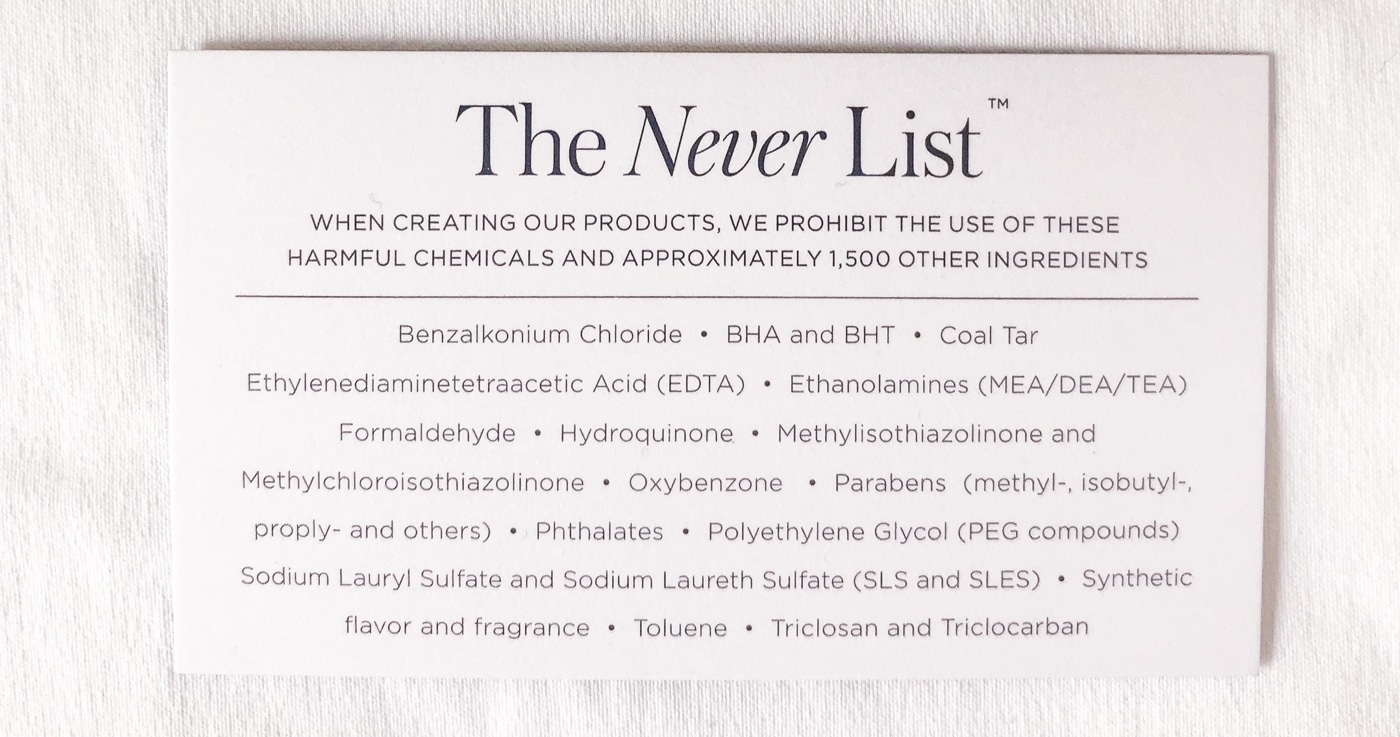
Drink clean water
Avoid drinking water from the tap or plastic bottles. A convenient solution is to get a good water filter. I got one last year, and I feel it is the best investment I’ve ever made: BERKEY WATER FILTER. A shower filter is as important: SHOWER FILTER.
5. Everybody, starting with the age of 45, should get a cognoscopy.
Ask your medical practitioner for a cognoscopy. A cognoscopy is a term coined by Dr. Bredesen, that refers to a simple assessment that uses a combination of laboratory and cognitive testing that identifies the contributors to cognitive decline or risk for mental decline.
6. Getting appropriate support: nutrients, hormones, trophic factors
I’m not going to go into much detail here because it is way above my competence, but it is something to have in mind and discuss with your health practitioner.
Make sure you don’t lack any essential nutrients and take the appropriate tests and supplements to bring all nutrients to optimal levels to support your brain cells and your overall health. Many hormonal imbalances will be addressed and corrected with a healthy lifestyle.
A few basic ones to look for are magnesium, Vitamin D, omega3-omega6 ratio, potassium, zinc, B vitamins, vitamin K2, and vitamin C.
If you need help finding reputable sources of supplements, check out our STORE, the SUPPLEMENTS category.
This list of superfoods whose role in supporting optimal gut and brain health has been extensively researched: maca powder, spirulina, lion’s mane, chlorella, and turmeric.
Keep in mind we are all different, and it’s best to first assess your needs with the help of a medical practitioner and personalized tests. Also, be aware that some supplements may interfere with certain medications.
ROOT’s ZERO-IN supports mood, improves memory, mental clarity, and focus. My husband and I take it and give it to my mother-in-law, who has late Alzheimer’s. This is a later edit; we wish we had known about this type of support a few years ago, when I wrote this article. (Please carefully read the dosage instruction on the ROOT website before starting any product; the idea is that you have to start slowly and build up to the optimal dose for you, and drink lots and lots of water).
From Wikipedia: “Neurotrophic factors (NTFs) are a family of biomolecules – nearly all of which are peptides or small proteins – that support the growth, survival, and differentiation of both developing and mature neurons.”
***
Essential oils to support brain health
Essential oils are also considered by specialists when it comes to optimizing and keeping your brain healthy and dealing with mood disorders, focus problems, brain fog, anxiety, depression, mental fatigue, and stress.
As with supplements, make sure they come from trusted sources and are high quality (preferably organic). Young Living and DoTerra are some of the most known brands, but you can also find good quality essential oils in natural stores like WholeFoods (Aura Cacia brand has a line of organic supplements). Here are a few ideas about the benefits of essential oils below:
- Uplifting effect (for anxiety): lavender, orange, lemon (citrus in general), bergamot, peppermint
- Calming, balancing, grounding: vetiver, lavender.
- To support your right brain (the creative side): wintergreen, cinnamon, clove, Roman camomille, etc
- To support your left brain (the analytical side): lavender, orange, geranium.
- LEMONGRASS is considered great for the brain, mental fatigue, and if mixed with Myrrh, great for Hashimoto’s auto-immune conditions.
***
7. Optimize vascular support will keep your brain healthy
Again, this can be done with a healthy lifestyle: diet, physical activity, being socially active, stress management, and purposeful and fulfilling life. And don’t be afraid to eat your healthy fats. Also, check in with your cardiologist and supplement if necessary.
8. Minimize exposure to toxic chemicals
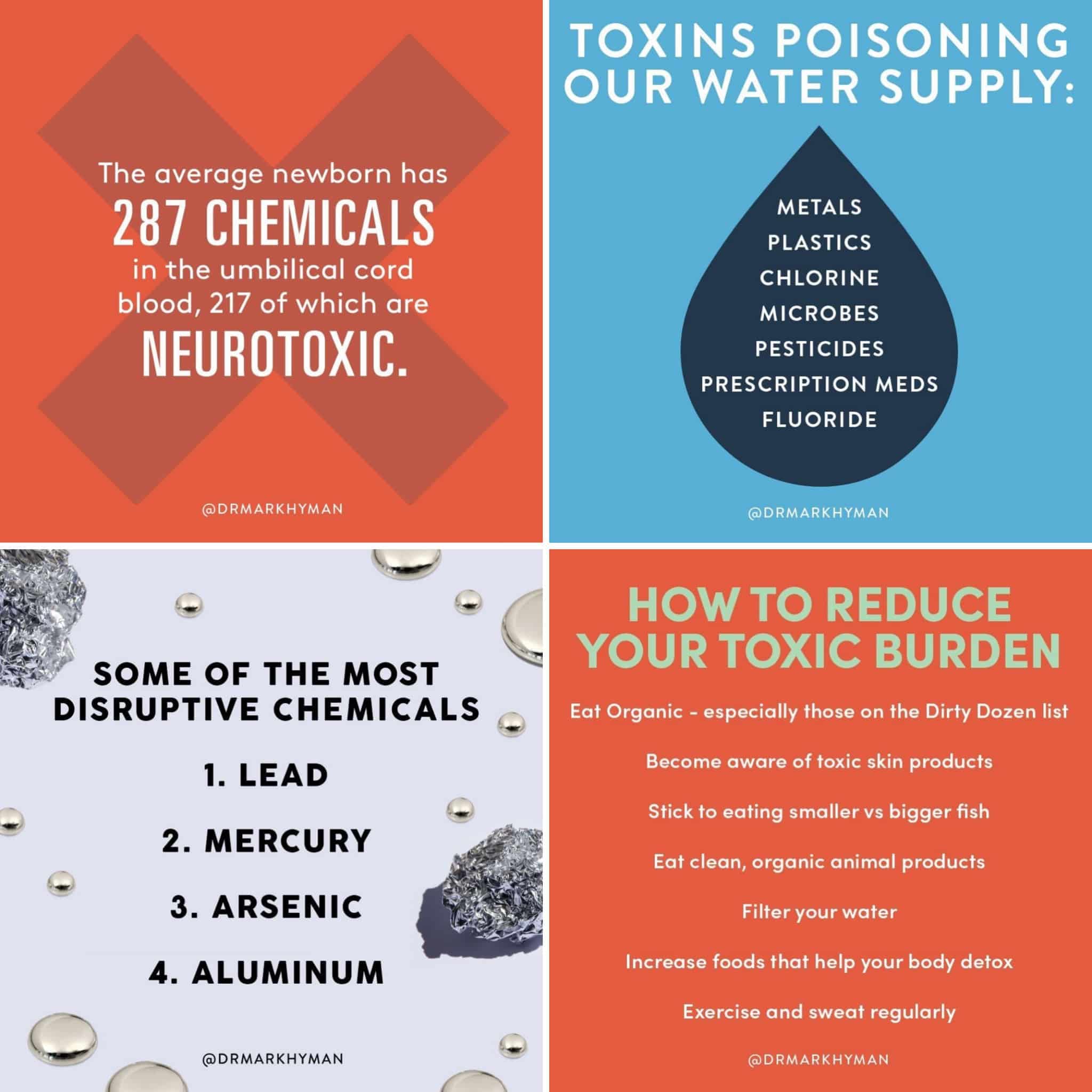
SEE POINT 4. You can do this by eating organic food whenever possible, using non-toxic cosmetic and household products, reducing exposure to plastic and non-stick cookware, drinking filtered water, purifying your air, spending time in nature, sweat to help your own body’s detoxification process (by doing sauna or exercising), etc. Check in with your medical practitioner if a liver support supplement can help you.
If you can, I recommend watching (and buying) the new documentary BROKEN BRAIN 2 and following Dr. Mark Hyman on social media.
ROOT’s CLEAN SLATE is essential in supporting your body to naturally and safely remove toxins.
(Please carefully read the dosage instruction on the ROOT website before starting any product; the idea is that you have to start slowly and build up to the optimal dose for you, and drink lots and lots of water).
9. Make self-care a priority
Identify and address other areas in your life that you feel are keeping you from living to your full potential. It can be relationships, unaddressed trauma, career, life purpose, spiritual life, passions, finances, physical activity, stress etc.
Keep your brain active by staying curious and keep learning new things. Find ways and techniques to manage stress and sleep well. Authentically connect with nature and community. Speak your truth. Find ways to serve your community. Learn how to meditate. Laugh. Love.
“Meditation improves areas associated with memory, sense of self, empathy, and stress. A study from Massachusetts General Hospital shows that meditation can actually rebuild grey matter in the brain. Grey matter atrophy is associated with various types of neurodegenerative diseases.” – Dr. Mark Hyman
10. Find your WHY
I heard Dr. Oz once say that “people don’t change what they do based on what they KNOW, they change what they do based on how they FEEL”. I think it s important that we all find our WHY, which will motivate us to change our habits.
So, before you think all the above is too overwhelming, take a moment and think about WHY you want to live a long and vibrant life; as Dr. Steven Gundry puts it, why would you want to die young at a ripe old age?
Is it because you want to have a beautiful and fulfilling life with your spouse until the end of your days? Is it because you don’t want to be a burden to your family? Or is it because you want to be fully aware and functional and present for your grandchildren and children as much as possible? Or want to watch them graduate, get married, and have their own kids? Is it because you feel you have so much more to learn, or you want to start a new adventure, or have a passion or hobby you want to practice for as long as possible? Is it because you want to enjoy your retirement years fully? Do you want to travel? Do you want to be able to serve others?
Whatever that is, write it down and let it fuel you. What is your WHY?
Ways to keep your brain healthy – Strive for progress, not perfection
One last thought on ways to keep your brain healthy and reduce the risk of cognitive decline. Any step in the right direction matters. Don’t worry if you can’t do everything. Just be aware of your body’s signals and try to do the best with what you have. Have small achievable goals and action them one by one.
You are unique, your needs are unique, and you know better how you feel. Never give up searching for answers. Do not accept if someone dismisses your symptoms. Move on and look for answers until you find them. Take the next best step.
*This post contains affiliated links, which means I get a small commission if you choose to purchase something via one of my links, at no extra cost to you.

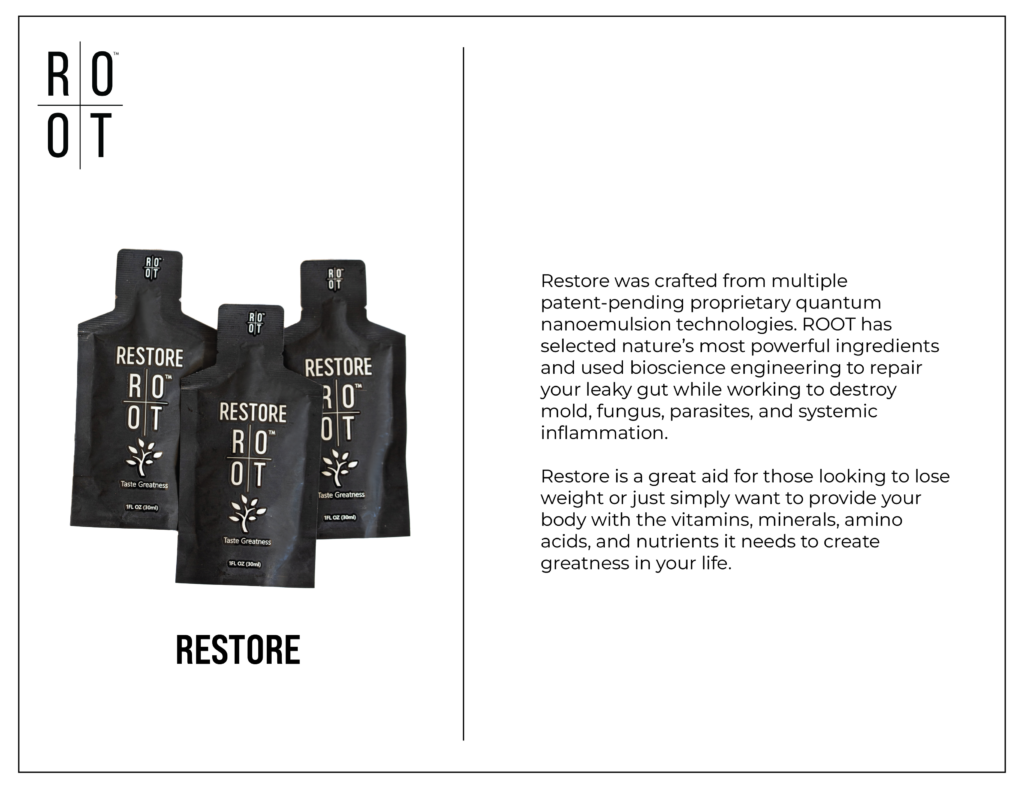
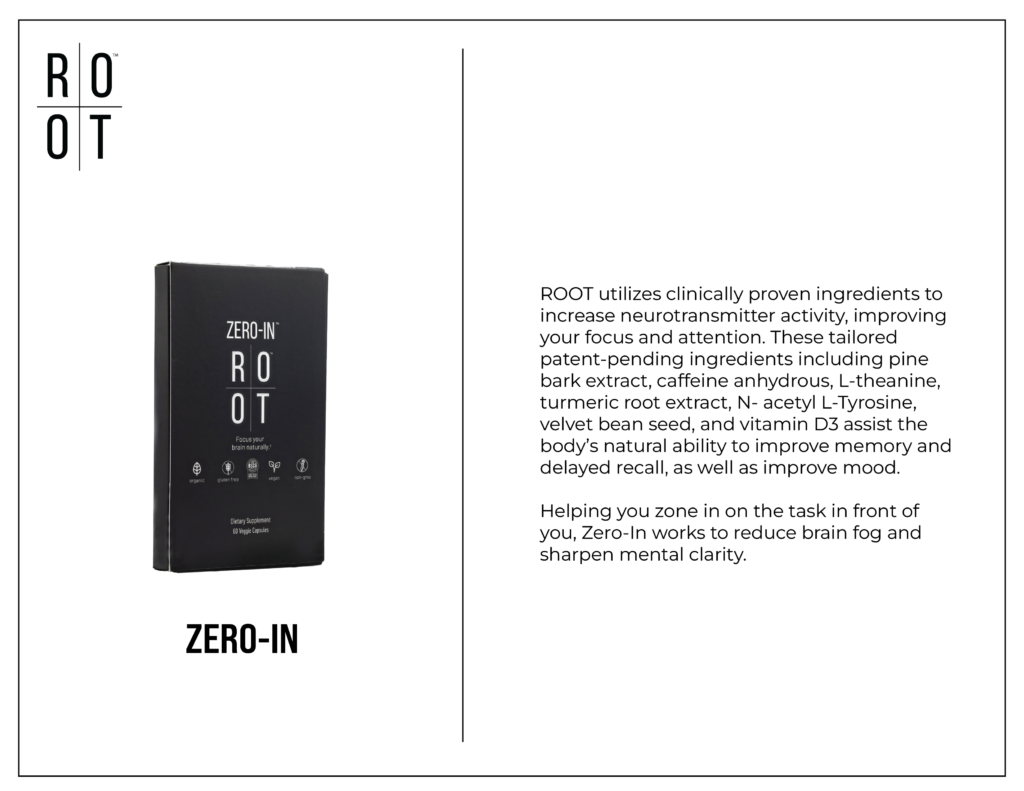
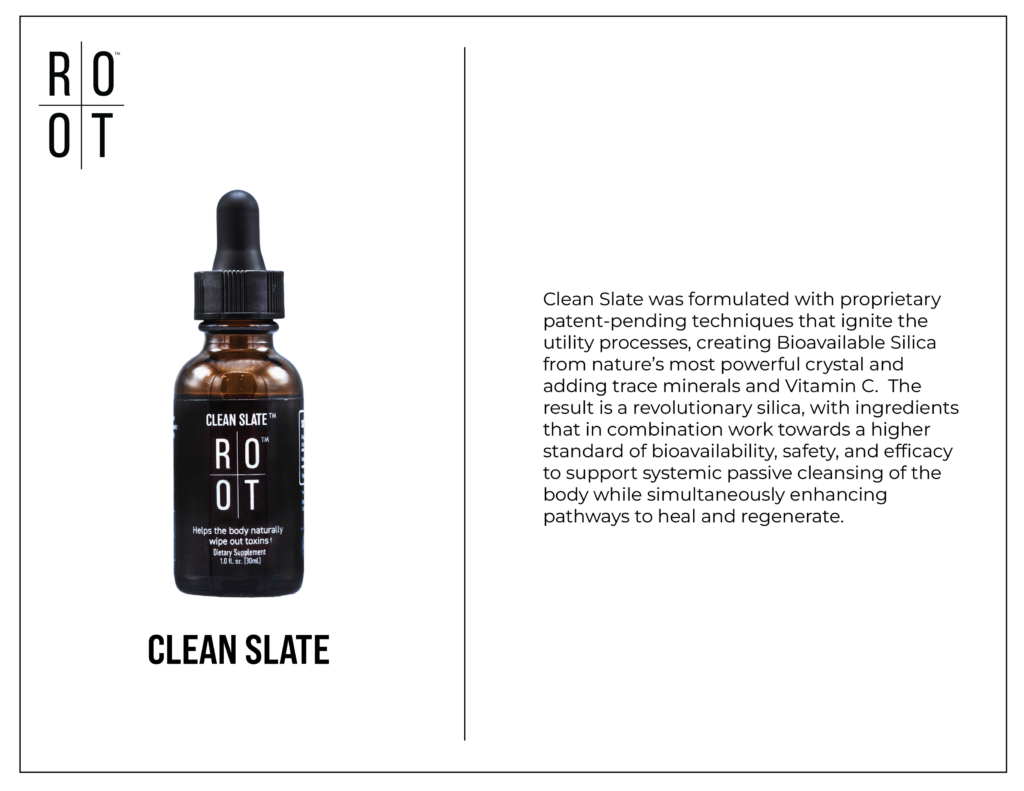
4 Comments
Margaret Clauder
December 18, 2022 at 2:54 pmClaudia this is a fantastic article. I think maybe you should break it up into smaller bits and send out each bit a little at a time. For those of us that have read it before it is always a good refresher. Thank you for always being a champion for better health through diet and lifestyle!
Claudia
December 19, 2022 at 9:43 amHi Margaret, thank you so much! That’s a great suggestion; I’ll probably focus more on this topic starting in January. Happy holidays <3
Maree
April 7, 2019 at 5:05 pmThanks for a great article. I’m on my own journey too. I love your last paragraphs. I do think we all believe we should be perfect at all times. I’m GF & DF and eat organic as much as possible. Eating away from home is the challenge.
Claudia
April 13, 2019 at 12:12 pmHi Maree, yes sometimes we don’t start something because we think we can’t do it all, or we can’t do it perfectly. Every single step in the right direction matter. <3